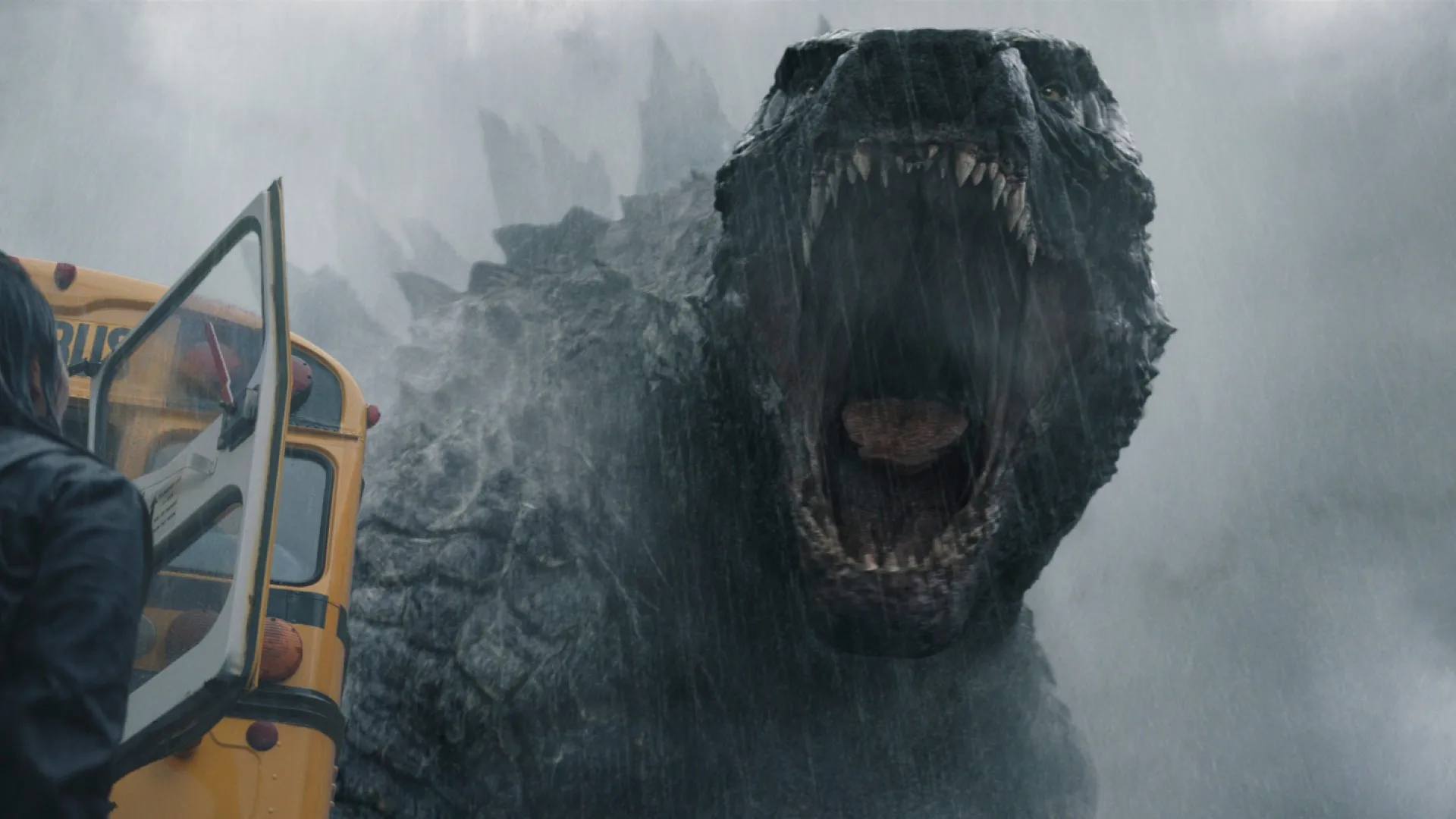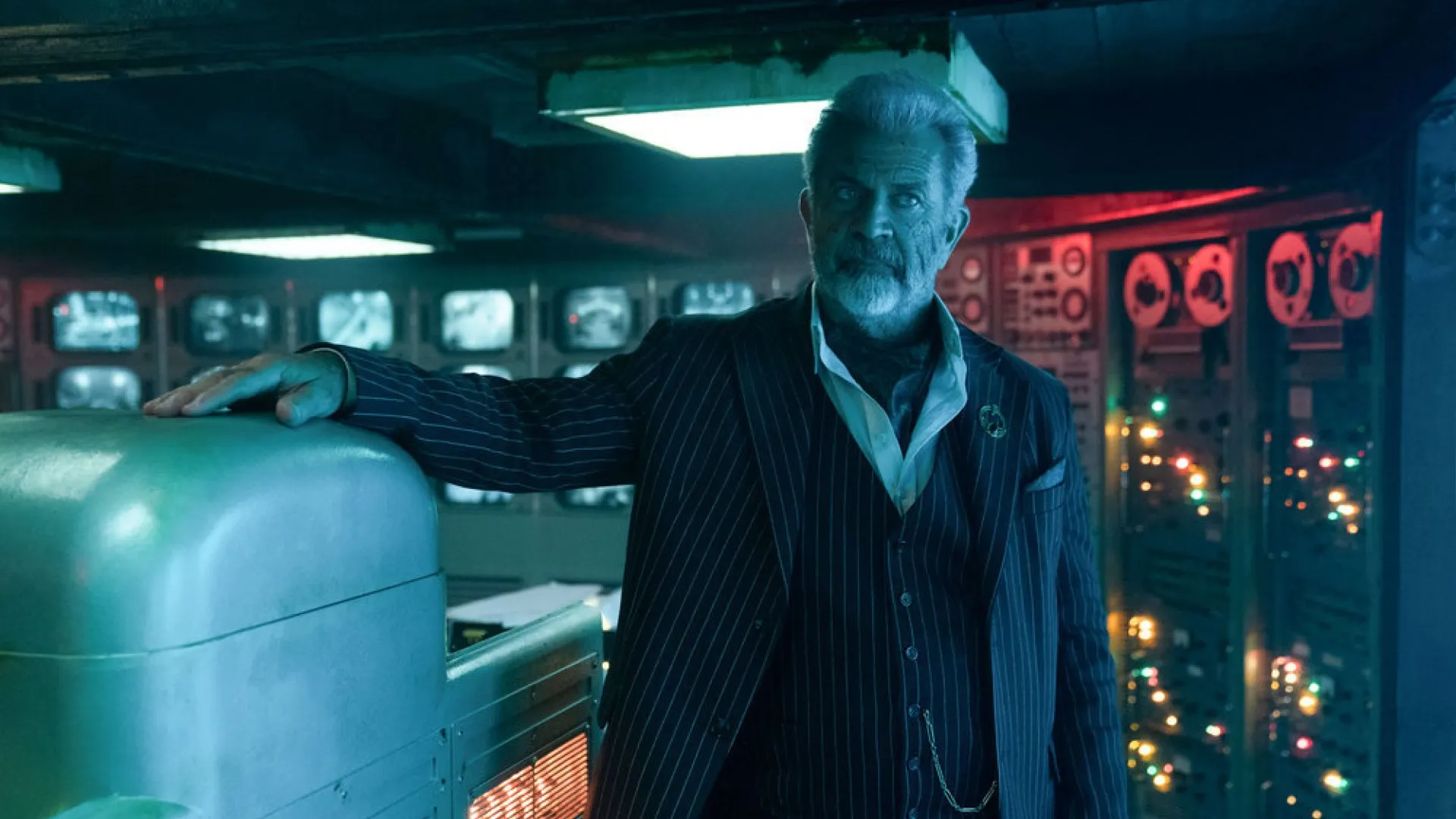
Just shy of his 70th birthday, Godzilla is now a TV star. Except not really. Monarch: Legacy of Monsters, which premiered earlier this month on Apple TV+, takes place in the so-called MonsterVerse, aka the same continuity as the recent American movies featuring the radioactive reptile, his simian frenemy Kong, and some more skyscraper-sized beasts. But the G-man himself is scarcely involved; he pops up for only a few minutes across the 10-episode season, as if appearing for a contractually obligated cameo. You see, Monarch isn’t actually the Godzilla show. Subtitle aside, it’s less a monster mash than an ensemble melodrama about plucky monster hunters working out their family baggage.
Earlier this fall, Peacock premiered its own small-screen version of a big-screen property. Like Monarch, The Continental: From the World of John Wick is one part spinoff, one part prequel — a limited streaming series that fills in the backstory of Winston Scott, dapper hotel proprietor of the John Wick movies. Wick, though, is nowhere to be found in the show. And those who pressed play expecting more of the acrobatic action and flavorful archetypes that characterize his starring vehicles were confronted instead with … another ensemble melodrama, this one set against a funky 1970s New York and only periodically enlivened by kung fu.
Both shows exemplify a dismaying trend in cross-medium adaptation: the transformation of pulp into soap, a kind of genre filtering for streaming subscribers. On movie screens, Godzilla and John Wick offer spectacular East-meets-West mayhem, promising (sometimes literal) lizard-brained entertainment. But television is too small for the legendary monster turned Legendary attraction and the man, the myth, the legend. The appeal of these icons has been squashed to fit the demands of a limited series, with most of their B pleasures sacrificed on the altar of the prestige TV formula. There’s lots of gab, lots of characters, lots of serialized interpersonal conflict.

Such makeovers were common in 2023, as TV executives dared to ask “What if Goosebumps was Stranger Things?” and “What if Edgar Allan Poe wrote for Succession?” The year in television arguably kicked off with the most high-profile example: the HBO adaptation of the PlayStation video game The Last of Us, which would swiftly become a critical and ratings sensation. In broad strokes, it was a faithful retelling, spreading most of the original plot points across nine episodes of weekly television. This wasn’t a huge leap: A game whose celebrated storytelling caught comparisons to prestige TV upon release a decade ago was probably always destined to become actual prestige TV.
Yet, if HBO’s The Last of Us preserved the specifics of Joel and Ellie’s cross-country pilgrimage, it also trimmed away many of the genre elements that fruitfully ballasted its fallen-world bonding and brooding. In making the story over for premium cable, creator Neil Druckmann demonstrated how crucial that stuff — the zombie horror, the stealth outlaw action — was to the alchemy of his Naughty Dog masterpiece. The show is like an all-cutscene cut, pruned of its thrills to feed the tonier tastes of, say, a Six Feet Under fan. It’s like ordering a steak and getting a “deconstructed” plate of garnishes instead.
HBO is arguably the leader in this field of de-genred genre fare. Does it go back to Game of Thrones, an era-defining hit that used George R.R. Martin’s bestsellers to mint a new kind of “grown-up” fantasy saga for the Peak TV age? Thrones said you could have dragons and zombies and magic and still tell a sprawling, character-driven epic of Tolstoy proportions. In the most superficial terms, it asked “What if Lord of the Rings was The Wire?” Networks have been chasing that kind of zeitgeist-redefining smash ever since, in part by wondering how geek-friendly properties like Godzilla and John Wick could be made palatable for casual viewers looking for their next Sunday night obsession to discuss around the watercooler.

There are without doubt budgetary benefits to this approach, of course. Filming people talking is always going to be an affordable way to do movie-sized material on a TV allowance. A Last of Us that largely cuts around the skirmishes with the undead, a Godzilla that keeps Godzilla and friends largely off camera, a John Wick that offers ass-kicking in dribs and drabs — these are cost-effective reimaginings. The latter two also manage to tie a new story directly to related blockbusters without totally violating the visual continuity. Neither Monarch nor The Continental look made-for-TV cheap, probably because they skimp on spectacle in favor of handsomely high production values.
Still, maybe the real reason TV creators keep making something talky and “grounded” and plot-heavy out of popular B-movie premises is that they have a lot of runtime to occupy. Watching Monarch, it’s hard to shake the feeling that the story lasts 10 episodes in order to last 10 episodes; the demand for a certain amount of streaming content is determining the nature of that content. Could you do 10 hours of Godzilla destroying Tokyo? Maybe, but that would require both enormous resources and the creative gumption to stretch a kaiju-movie logline past the two-hour mark. Faced with a full season of television to fill, the creators make like a high-schooler straining to reach the required word count of their essay. The plot of Monarch is structurally tangled — it spans half a century, telling an intergenerational family drama— without ever becoming particularly complex. Episode-long flashbacks feel like dramatic filler.
There’s no reason, of course, that we can’t have ambitious TV reworkings of genre fare. If you’re going to move these stories to the small screen, why not do something different with them? HBO has found success thinking outside the box and the proverbial video-store aisle. It’s how we got a cerebral, puzzle-box adaptation of Michael Crichton’s killer-robots potboiler Westworld and a Watchmen set in a world without superheroes. Both those shows denied their audiences the basic genre appeal of their source material, but offered something unique in its place.

In lieu of the lowbrow hooks they abandon, what do shows like Monarch and The Continental offer? Mostly, a lot of thin characters trudging through melodrama that’s stretched thin. No one in Monarch (no, not even the guy jointly played by Kurt and Wyatt Russell) is interesting enough to make you forget how long it’s been since Godzilla showed up to step on something. And no one in The Continental, which plays like a generic Elmore Leonard throwback, is interesting enough to keep you from missing the star power of Keanu Reeves or any of the martial artists he battles in the Wick films. Meanwhile, both shows demonstrate that a negligible plot would be better than a dull one. It takes real effort to drain the fun from a world where every other bystander is actually a deadly trained assassin or a world where prehistoric creatures loom like mountains.
Godzilla without Godzilla is not an unworkable premise. Neither is John Wick without John Wick. But to reduce these popular, mythic franchises to mere story machines, churning out a few episodes of overstuffed soap opera vaguely in the key of Toho or Keanu, is brand abuse. When you’re a hammer, the whole world is a nail. And when you’re a TV exec, every cool genre premise can be tamed into something blandly bingeable, trimmed of its disreputable qualities and reshaped into fodder for the “recommended for you” queue.
Monarch: Legacy of Monsters is now streaming on Apple TV+. The Continental: From the World of John Wick is now streaming on Peacock. The Last of Us is now streaming on Max.



